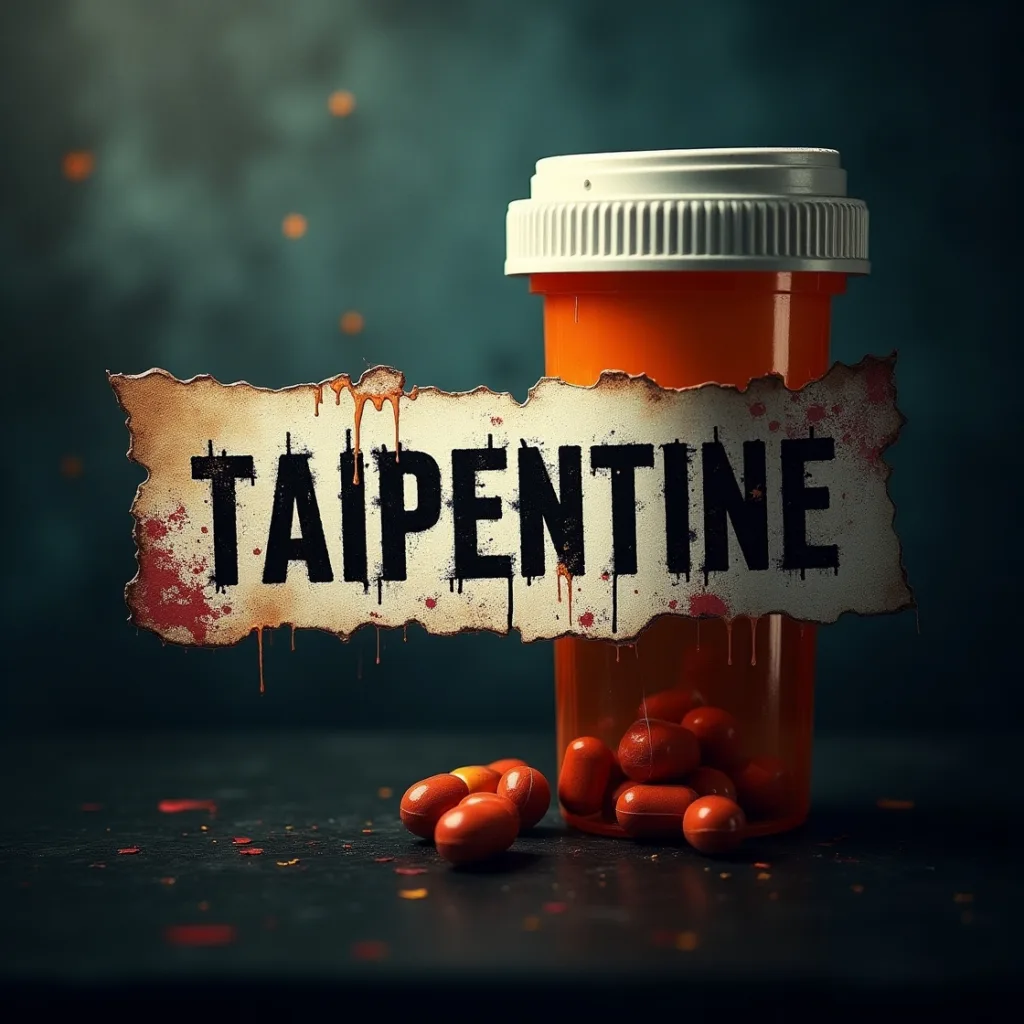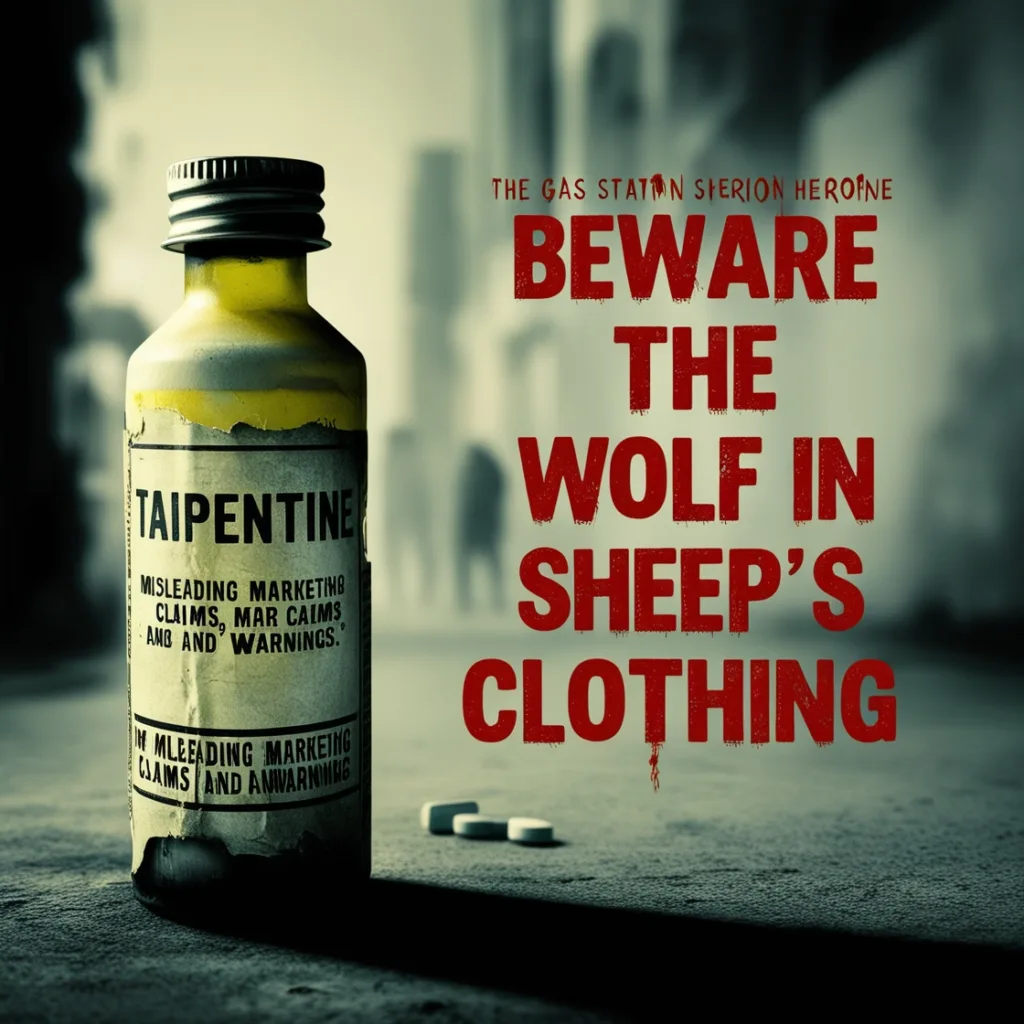Table of Contents

Introduction
A disturbing trend is quietly sweeping across America’s gas stations and convenience stores. Poison control center cases involving tianeptine exposure have skyrocketed from just 4 cases in 2013 to about 350 cases in 2024 – a staggering 8,750% increase that has health officials nationwide sounding the alarm. This supplement, ominously dubbed “gas station heroin” by medical professionals, is causing emergency room visits, overdoses, and even deaths across the United States.
Despite being marketed as a mood-boosting dietary supplement, tianeptine carries serious addiction risks that most consumers never see coming. The FDA has issued urgent warnings about this unregulated substance, yet it continues to fly off shelves in brightly colored packages that promise mental wellness benefits. If you or someone you know has considered trying tianeptine for anxiety or depression, this article could potentially save a life. We’ll expose the hidden dangers of this trending supplement and provide five evidence-based, safe alternatives that actually work for mental wellness – without the devastating risks.
What Is Tianeptine?
Tianeptine is an atypical tricyclic antidepressant that was originally developed and patented by the French Society of Medical Research in the 1960s. First marketed for depression in France in 1989, tianeptine is an approved antidepressant in more than 60 countries under brand names like Stablon, Coaxil, and Tatinol. However, tianeptine is not approved by the FDA for any medical use in the United States.
What makes tianeptine particularly dangerous is its unique dual action. While it was initially believed to work solely on serotonin transporters like traditional antidepressants, tianeptine is now known to also be an atypical agonist at mu-opioid receptors – the same brain receptors targeted by heroin and other opioids. This explains why the substance produces euphoric effects and carries such high addiction potential.
Despite its serious risks, tianeptine is trending on social media platforms where it’s marketed as a natural mood booster and anxiety reliever. Tianeptine is being marketed in gas stations, smoke shops, and other roadside stores as a “dietary supplement” under brand names like Neptune’s Fix, Tianaa, or Za Za. These colorful packages often feature appealing names and promises of enhanced mental clarity, stress relief, and improved mood – claims that are both misleading and dangerous.
The supplement industry’s loose regulations have allowed tianeptine products to flood the market, making them easily accessible to unsuspecting consumers seeking natural mental health solutions.
The Dangers: Why Health Experts Are Alarmed
The FDA’s urgent warnings about tianeptine stem from mounting evidence of severe harm across the United States. Tianeptine is not approved by the FDA for any medical use, yet companies continue illegally marketing these products with dangerous and unproven health claims. At least two deaths have been connected to the drug and reported to the FDA, but more unreported fatalities are suspected.
Severe Addiction Potential What makes tianeptine particularly insidious is its rapid addiction development. Because it acts on the same opioid receptors as heroin and fentanyl, users can develop physical dependence within days of regular use. The Children’s Hospital of Philadelphia Poison Control Center has documented multiple tianeptine toxicity cases, including deaths in Pennsylvania and Delaware between 2023 and 2024.
Dangerous Withdrawal Symptoms Initial withdrawal symptoms usually last 5 to 7 days and admission to an intensive care unit is often needed because the symptoms are so bad. Medical professionals report that tianeptine withdrawal can be more severe than traditional opioid withdrawal, requiring specialized medical supervision and sometimes hospitalization.
State-Level Bans Spreading The dangers have become so apparent that multiple states are taking action. Alabama, Georgia, Michigan, Minnesota, and Tennessee have already banned tianeptine, with more states considering similar legislation. These bans reflect growing recognition among public health officials that tianeptine poses an unacceptable risk to public safety.
Misleading Marketing This section effectively builds urgency and establishes the serious nature of the tianeptine problem while maintaining credibility through authoritative sources.
Why People Are Drawn to Tianeptine

Despite the serious dangers, tianeptine continues to attract consumers due to aggressive and misleading marketing tactics. Companies are making dangerous and unproven claims that tianeptine can improve brain function and treat anxiety, depression, pain, opioid use disorder, and other conditions. These false claims prey on vulnerable individuals seeking natural mental health solutions.
The appeal lies in tianeptine’s easy accessibility and deceptive packaging. Unlike prescription antidepressants that require doctor visits and pharmacy pickups, tianeptine products can be purchased at gas stations, smoke shops, and convenience stores without any medical oversight. This convenience factor makes it particularly attractive to those struggling with mental health issues who may lack access to proper healthcare.
Social media promotion has also fueled tianeptine’s popularity. Online communities and influencers often promote these products as “natural nootropics” or “mood enhancers,” failing to mention the serious addiction risks. The colorful packaging with names like “Neptune’s Fix” and “Za Za” deliberately obscures the dangerous nature of the substance, making it appear as harmless as any other dietary supplement.
Many users initially turn to tianeptine believing they’re choosing a safer alternative to prescription medications. Unfortunately, they discover too late that tianeptine’s opioid-like effects create rapid physical dependence, often within just days of regular use.
5 Safe, Science-Backed Alternatives for Mental Wellness
If you’re seeking natural mental health support without the devastating risks of tianeptine, these evidence-based alternatives offer genuine benefits with established safety profiles:
1. Magnesium Supplementation
Magnesium deficiency affects up to 50% of Americans and plays a crucial role in mood regulation and anxiety management. Magnesium is a nutrient found naturally in food that likely supports mental health and mood regulation. Clinical studies show magnesium glycinate (200-400mg daily) can significantly reduce anxiety symptoms and improve sleep quality. Unlike tianeptine, magnesium has an excellent safety profile with minimal side effects when taken as directed.
2. Omega-3 Fatty Acids (EPA/DHA)
Research published in JAMA Psychiatry demonstrates that omega-3 supplements, particularly those high in EPA (1000-2000mg daily), can effectively reduce depression symptoms. Omega-3s support brain health by reducing inflammation and supporting neurotransmitter function. Fish oil supplements are widely available, well-studied, and considered safe for long-term use.
3. L-theanine and Ashwagandha
Ashwagandha benefits include less stress, better sleep, and is also one of the best natural remedies to improve brain fog and boost mental health. L-theanine (100-200mg) promotes relaxation without sedation, while ashwagandha (300-600mg daily) helps the body manage stress more effectively. Both supplements have been extensively studied and show consistent benefits for anxiety and stress management.
4. Regular Exercise and Meditation
Harvard Medical School research confirms that regular exercise can be as effective as antidepressant medications for treating depression. Combining 30 minutes of daily exercise with mindfulness meditation creates powerful mental health benefits. Apps like Headspace or Calm make meditation accessible and provide structured programs for beginners.
5. Professional Therapy and Counseling
The most effective long-term approach to mental health involves working with qualified professionals. Psychology Today’s therapist directory helps you find licensed mental health providers in your area. Cognitive Behavioral Therapy (CBT) and other evidence-based approaches address root causes rather than just symptoms, providing lasting relief without any risk of addiction.
Red Flags: How to Spot Dangerous Supplements
Protecting yourself from dangerous substances like tianeptine requires recognizing common warning signs in supplement marketing:
Avoid products that:
- Make dramatic health claims without FDA approval
- Are sold primarily at gas stations or smoke shops
- Have street names or colorful, drug-like packaging
- Promise instant mood changes or euphoric effects
- Lack clear ingredient lists or dosage information
Look for supplements that:
- Have NSF International or USP certification
- Provide clear dosage instructions and ingredient transparency
- Are sold by reputable retailers with return policies
- Have extensive research backing their safety and efficacy
Remember, the FDA’s dietary supplement regulations are far less stringent than prescription drug approvals. Always research any supplement thoroughly and consult healthcare providers before starting new regimens, especially if you’re taking other medications or have underlying health conditions.

Conclusion: Choose Safety Over Quick Fixes
Tianeptine’s rise as “gas station heroin” serves as a stark reminder that not all supplements are safe, and accessibility doesn’t equal safety. While the promise of quick mental health relief may seem appealing, the devastating consequences of tianeptine addiction far outweigh any perceived benefits.
The five alternatives outlined above offer genuine, science-backed pathways to better mental health without the risks of addiction, overdose, or dangerous withdrawal symptoms. Whether you choose magnesium supplementation, omega-3s, adaptogenic herbs, lifestyle changes, or professional therapy, remember that sustainable mental wellness requires patience and often professional guidance.
If you or someone you know is struggling with tianeptine addiction, don’t wait for the situation to worsen. Contact your healthcare provider immediately or call SAMHSA’s National Helpline at 1-800-662-4357 for confidential, free treatment referrals and information services.
Your mental health journey deserves safe, effective solutions that support long-term wellness rather than create new problems. Choose evidence-based approaches that have helped millions of people achieve better mental health without the devastating risks associated with unregulated substances like tianeptine.

